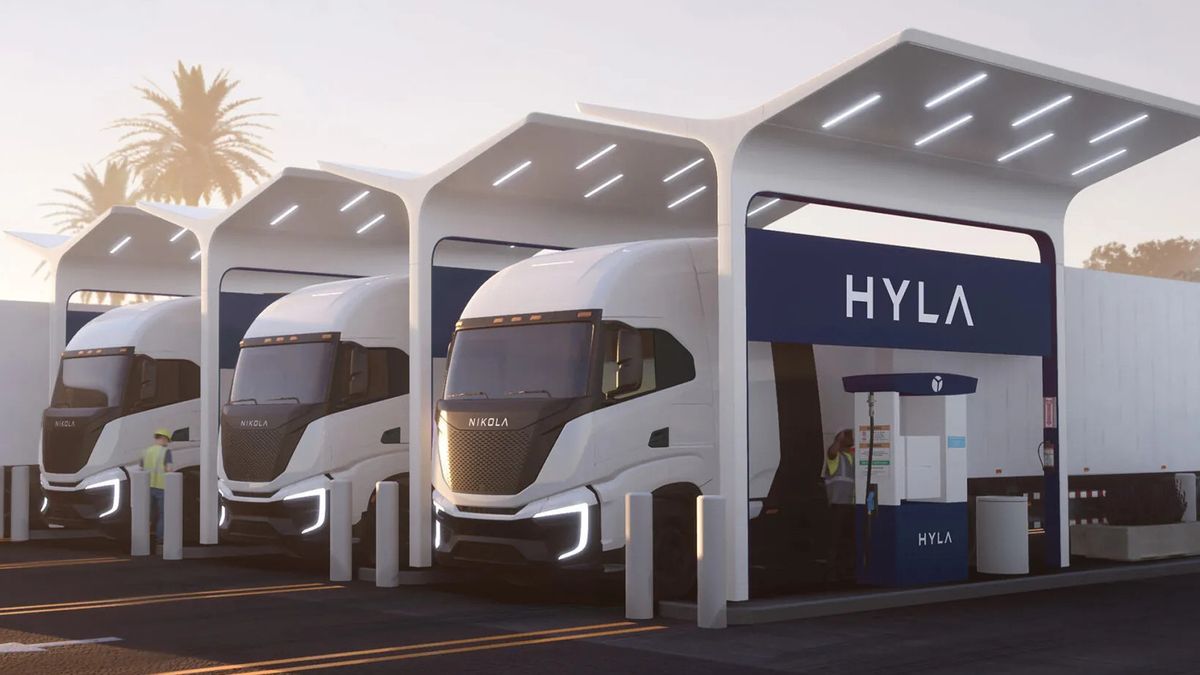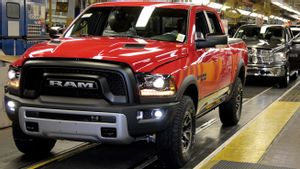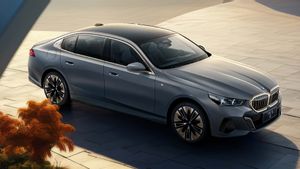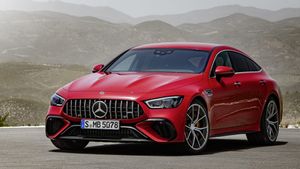JAKARTA - In an effort to reduce carbon emissions, the world is increasingly looking for alternative energy sources. One of the solutions that is currently on the rise is the use of hydrogen, especially in providing cleaner options for the transportation industry.
In recent years, a number of innovations have led to the development of vehicles that use hydrogen as an energy source.
Unlike fossil fuels that release planetary heating gas, hydrogen fuel can be clean up to 100%, depending on the combustion process. In hydrogen fueled electric vehicles (FCEVs), hydrogen is burned with pure oxygen in special cells, and the only byproduct is water.
Projections also suggest that hydrogen fuel will play a key role in the coming decades. Experts predict that the global hydrogen market will reach around $231 billion by 2030.
Last month, California Transportation Commission (CTC) granted $41.9 million to Nikola Corporation through the HYLA brand, in order to build 6 large capacity hydrogen refueling stations across Southern California.
Each hydrogen charging station there is designed to support and expand the growth in hydrogen vehicle refueling needs, quoted from Yahoo Finance's report, July 6.
Meanwhile, Nikola Corporation, a producer of hydrogen electric trucks, has also received orders for 202 units of electric trucks powered by hydrogen fuel cells, reflecting the growing industrial trend towards sustainable solutions.
On the other hand, in Canada, First Hydrogen announced the results of road tests for vehicles fueled by hydrogen fuel cells (FCEVs) apparently exceeded expectations. These test results provide promising feedback, proving the feasibility of hydrogen energy.
Then in early August, it was reported that VOI previously, the UK would also open its first hydrogen refueling center starting in 2024. This charging station will be built by British startup, Element 2, and supported by government grants of 8 million pounds or around IDR 155 billion.
With the fast-growing sales of electric vehicles, does hydrogen vehicles have a future on the world highway?
Sales of self-drogen vehicles in the second quarter of 2023 in the United States (specifically in California, where this hydrogen production and infrastructure model is available) reached the highest quarterly volume in history.
According to Hydrogen Fuel Cell Partnership data, quoted from InsideEVs, July 31, during the second quarter of 2023, 1,076 units of new hydrogen fuel cell cars were sold in the US, or 34 percent more than last year.
Uniquely from the data, the record for the most sales in the second quarter was only recorded by one model, namely Toyota Mirai, which Toyota said recorded sales of 1,054 units while Hyundai only reported 40 sales of the Nexo model.
To note, not so many manufacturers are serious about developing hydrogen-fueled vehicles, even a number of manufacturers only have one model with some already known, such as Toyota with Mirai, Hyundai with Nexo, Honda with Clarity Fuel Cell, BMW with iX5 Hydrogen, Mercedes-Benz with GLC F-CELL, and some are still in the form of concept cars.
Quoted from Auto Express, June 23, one of the interesting aspects of hydrogen vehicles is the charging speed that is almost comparable to refueling gasoline or diesel. It takes only about 5 minutes to fill the hydrogen tank, a significant advantage compared to longer charging times in battery electric cars.
However, despite its favorable charging speed, the adoption of hydrogen vehicles is still hampered by the main challenge, namely infrastructure. According to UK H2 Mobility, in the UK alone there are currently only 6 hydrogen charging stations. Obviously with this reality, using a hydrogen car is something difficult to do.
But with technological developments, experts are optimistic that with infrastructure improvements and appropriate technological solutions, hydrogen vehicles can be a more attractive and sustainable alternative in an effort to reduce emissions and dependencies on fossil fuels.
VOIR éGALEMENT:
Given the potential for a better speed of charging and environmental impact, the world community clearly hopes that the future of hydrogen-fueled vehicles will be brighter. With collaboration between stakeholders, vehicle manufacturers, and the energy sector, it is likely that in the next few years the growth of hydrogen vehicles will also increase along with the readiness of its infrastructure.
The English, Chinese, Japanese, Arabic, and French versions are automatically generated by the AI. So there may still be inaccuracies in translating, please always see Indonesian as our main language. (system supported by DigitalSiber.id)












